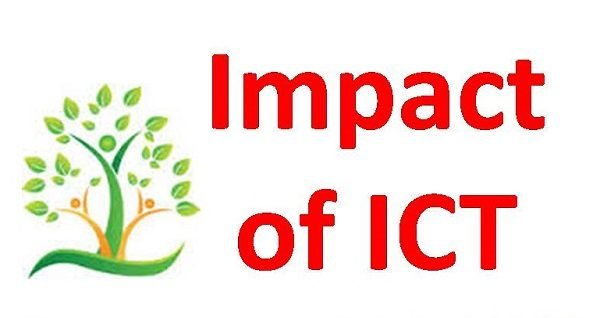
Benefits of ICT in Society
- Categories Computer Fundamentals
Q 1. What are the Benefits of ICT in Education?
Ans:
- e-learning using digital video and animation etc. makes complex concept more visual and easier to understand for student therefore resulting in more involve learning.
- With multiple courses available online 24/7, it leads to personalized learning environment that is tailored to student’s individual level, interest and learning style.
Q 2. What are the benefits of ICT in Healthcare?
Ans:
- ICT has lead to discovery of numerous methods of imaging and diagnostic hardware/software which helps in better and timely diagnosis of diseases.
- With ICT a patientselectronic health records are maintained which quickens the response time for patients leading to more patient centric approach.
Q 3. What are the benefits of ICT in Governance?
Ans:
- ICT leads to increased transparency and accountability as most of the information is available to citizens online.
- It reduces cost of operation and corruption, eliminating the need for middle men and allowing citizens to leverage government services directly.
Q 4. What are virtual schools and what are its advantages & disadvantages?
Ans:
Virtual or Cyber school allows children to attend school from home, with certified teachers and a set curriculum.
PROS:
- Student can work at their own pace giving them ability to customise their education
- Students can have flexible schedule and works well for travelling parents.
- There is less social distractions and schooling is done within safety of home
CONS:
- Personal touch and guidance is lost.
- Students lose out on developing social skills and participation in activities beyond studies.
- Sometimes its difficult to motivate students when there is no rule based structured environment.
Q 5. What are the characteristics of knowledge-based economy?
Ans:
Knowledge economy is when there is greater reliance on intellectual capabilities(often referred toas “human capital“) than on physical inputs or natural resources.
- Unlike natural resources which are depleted when used, information and knowledge can be shared, and actually grow through application.
- Knowledge economy leads to creation of virtual marketplaces, organizations that offer benefits of speed, agility, round the clock operation and global reach.
Q 6. What are the characteristics of knowledge-based society?
Ans:
A knowledge based society refers to societies that are well educated therefore rely on the knowledge of their citizens to drive innovation, prosperity and well-being of its people.
- A knowledge society promotes human rights and offers equal, inclusive, and universal access to all knowledge creation.
- In a knowledge society individuals, communities and organizations produce knowledge-intensive work
Q 7. What is infomania?
Ans:
Infomania is the compulsive desire to check or accumulate news and information typically via mobile phone or computer. People are finding it increasingly harder to switch off from smart phones and internet access, often called Net Addiction. They are suffering as a result of constant urge and need to check email or social sites could classify a person as an info maniac.
Q 8. What is digital Unity?
Ans:
Digital inclusion is the ability of individuals and groups to access and use information and communication technologies
Q 9. What is digital divide?
Ans:
Digital divide is an economic and social inequality with regard to access to, use of, or impact of ICT.
You may also like

Getting Started in Software Engineering

Output devices

